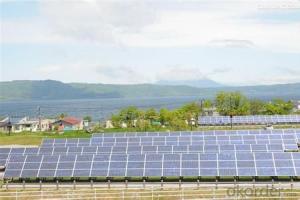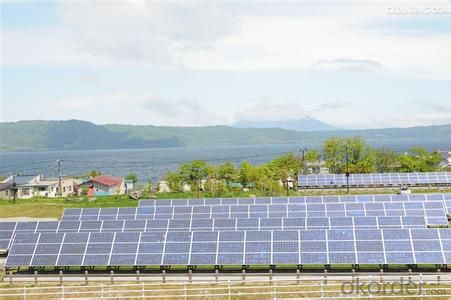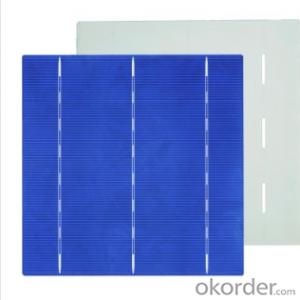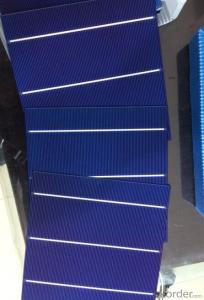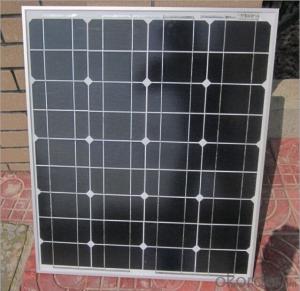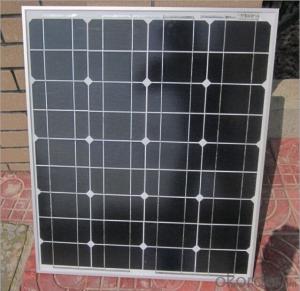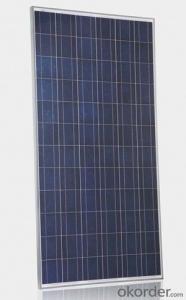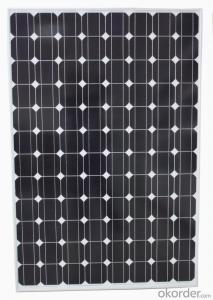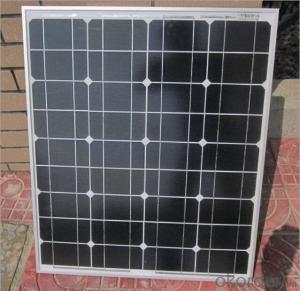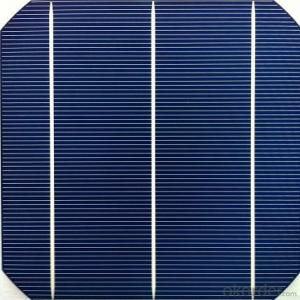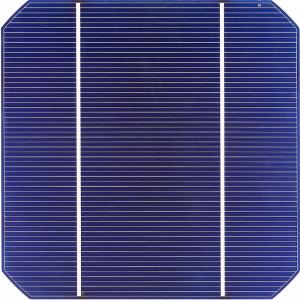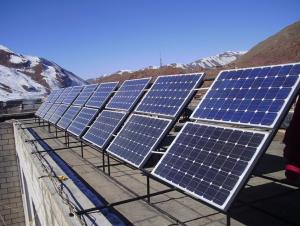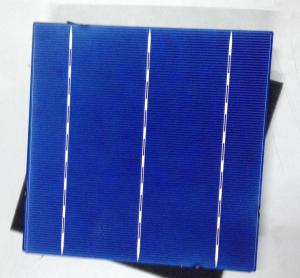Discount Monocrystalline Silicon Home Solar Cells 50w
- Loading Port:
- China Main Port
- Payment Terms:
- TT OR LC
- Min Order Qty:
- -
- Supply Capability:
- -
OKorder Service Pledge
Quality Product, Order Online Tracking, Timely Delivery
OKorder Financial Service
Credit Rating, Credit Services, Credit Purchasing
You Might Also Like
Quick Details
| Model Number: | |||||
| Material: | Size: | Number of Cells: | |||
| Max. Power: | Certificate: | Color: | |||
| Frame: |
Packaging & Delivery
| Packaging Detail: | packaging:carton and wooden pallets. weight:4.3kg 20GP:2065pcs 40HQ:4310pcs |
| Delivery Detail: | 15-20 days ,depend on your order quantity. |
Specifications
1.17% conversion efficiency.
2.Excellent quality with good price.
3.100% TEST before and after encapsulation.
4.MOQ:100pcs
Design features of solar panel:
Front | Tempered glass |
Encapsulation | EVA |
Back | TPT |
Frame | Aluminum |
Warranty | 5 years |
Life time | 25 years |
Certificate | CE, ISO, ROHS |
Electrical characteristics:
| Maximum Power[Pmax] | 50W ±5% |
| Maximum Power Voltage[Vmp] | 18V ±3% |
| Maximum Power Current[Imp] | 2.77A ±3% |
| Short-Circuit Current[Isc] | 3.05A ±3% |
| Open-Circuit Voltage[Voc] | 21.6V ±3% |
| Current Temperature coefficient | 0.08%/ ℃ |
| Voltage Temperature Coefficient | -0.32%/ ℃ |
| Power Temperature Coefficient | -0.38%/ ℃ |
| Maximum System Voltage | 1000V |
- Q: How many years should I spend in the solar cell industry to be a good solar cells sales person?
- A good solar cells should be equiped with both solar cells knowledge and good sales skills, and with very good people skills. Only in this way, you will be a good one.
- Q: Can solar cells be used in schools or educational institutions?
- Yes, solar cells can definitely be used in schools or educational institutions. They provide a practical and hands-on way to teach students about renewable energy sources, sustainability, and environmental stewardship. Installing solar cells in schools can also help reduce electricity costs and promote energy efficiency, making it a beneficial investment for educational institutions.
- Q: Can solar cells be used in satellites?
- Yes, solar cells can be used in satellites. In fact, they are the primary source of power for most satellites in space. Solar cells convert sunlight into electricity, allowing satellites to generate the energy they need to function and carry out their missions.
- Q: What is the typical size and weight of a solar cell?
- The typical size of a solar cell can vary depending on its application, but a standard residential solar panel is usually around 65 inches by 39 inches, with a thickness of about 1.5 inches. In terms of weight, a typical solar cell can weigh anywhere from 40 to 50 pounds.
- Q: Can solar cells be used for powering remote weather monitoring stations?
- Yes, solar cells can be used to power remote weather monitoring stations. Solar cells are a reliable and sustainable source of energy that can convert sunlight into electricity. They can be installed in remote areas where access to the power grid is limited or non-existent, providing a consistent power supply to operate weather monitoring equipment. Additionally, solar cells require minimal maintenance and have a long lifespan, making them a practical choice for powering remote weather monitoring stations.
- Q: How to get high voltage, high current output of solar cells
- A reasonable series of parallel can be, and increase the number of sub-batteries
- Q: How do solar cells handle shading or obstructions?
- Solar cells are designed to handle shading or obstructions by employing bypass diodes. These diodes allow the current to bypass the shaded or obstructed areas, preventing them from affecting the overall performance of the solar cell.
- Q: Can solar cells be used in public transportation?
- Yes, solar cells can be used in public transportation. They can be integrated into vehicles such as buses, trams, or trains to harness solar energy and power various onboard systems. Solar panels on the roof can generate electricity to charge batteries, power lighting and ventilation systems, or even propel the vehicle itself. This helps reduce reliance on traditional fuel sources and decreases carbon emissions, making public transportation more sustainable and environmentally friendly.
- Q: Can solar cells be used to power remote agricultural monitoring systems?
- Yes, solar cells can be used to power remote agricultural monitoring systems. Solar cells convert sunlight into electricity, providing a sustainable and reliable source of power in remote areas. This allows agricultural monitoring systems to operate efficiently and continuously, enabling farmers to remotely monitor and manage their crops, weather conditions, soil moisture, and other important data for optimizing agricultural practices.
- Q: Can solar cells be used in telecommunications?
- Yes, solar cells can be used in telecommunications. They can power various telecommunication devices such as cell phones, radio transmitters, satellites, and remote communication systems, especially in areas with limited access to electricity grids. Solar energy can be harnessed to charge batteries or directly power these devices, providing a reliable and sustainable source of energy for telecommunications.
Send your message to us
Discount Monocrystalline Silicon Home Solar Cells 50w
- Loading Port:
- China Main Port
- Payment Terms:
- TT OR LC
- Min Order Qty:
- -
- Supply Capability:
- -
OKorder Service Pledge
Quality Product, Order Online Tracking, Timely Delivery
OKorder Financial Service
Credit Rating, Credit Services, Credit Purchasing
Similar products
Hot products
Hot Searches
Related keywords
